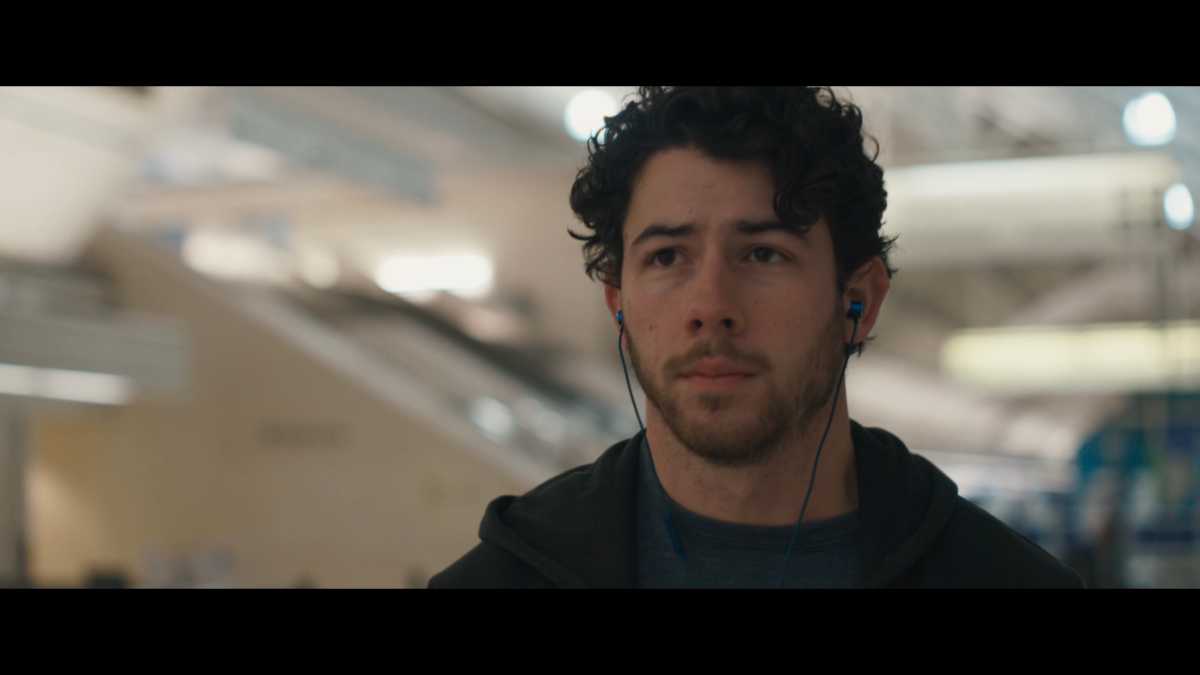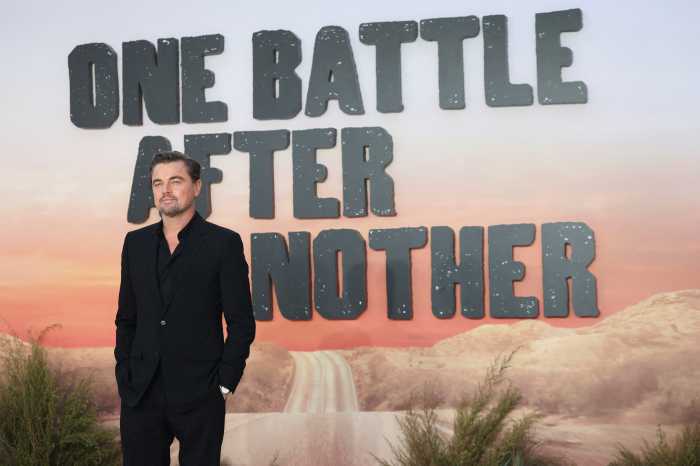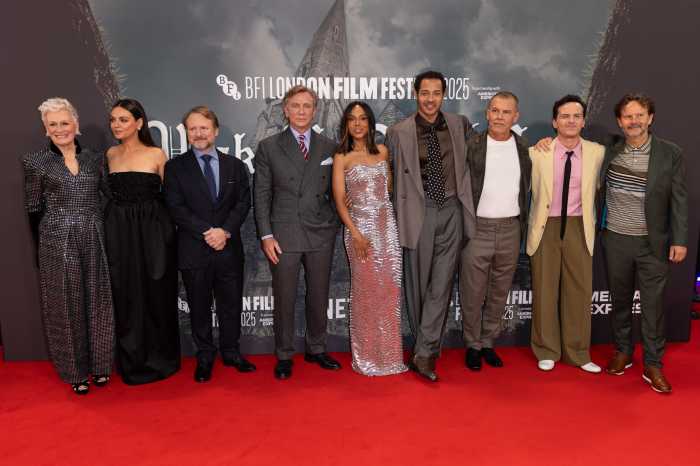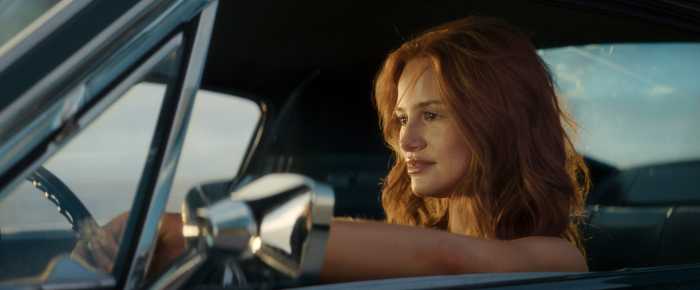In ‘The Good Half,’ we see a story of grief told through Renn (Nick Jonas), who returns home to Cleveland for his mother’s funeral and encounters a cast of characters, both familiar and not, that help shape one of the hardest times in his life. To dig a little deeper into the film, director Robert Schwartzman sat down to discuss his own dealings with grief, how that played into the film, and why a movie that mixes tough subjects with comedy can be entertaining and also, cathartic.
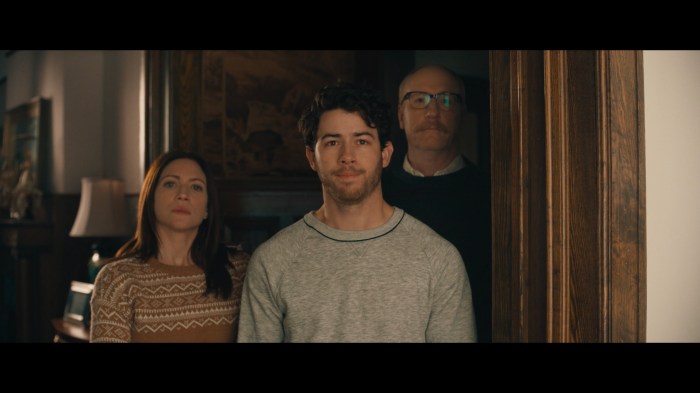
What stood out to you about the script when you first read it?
Brett (Ryland) is a really great writer. His voice was strong in the script and it was well crafted. I thought the characters all had a certain style and feeling to them that I really liked— I liked Rick (David Arquette) against Darren (Matt Walsh). I liked the light that was Lily (Elisabeth Shue) and the Zoe (Alexandra Shipp) character, I just liked how they played off each other.
I thought the sort of hard-to-read Leigh (Brittany Snow) character would be an interesting one to play with, and then Renn’s (Nick Jonas) internal struggle of “What am I going to do with myself now that the person who knew me the best is not around anymore?” There was a lot going on in these characters that felt real and deep and interesting and engaging. So that worked on a character level, but on a personal level, I lost a parent to pancreatic cancer, just like Renn’s mom (in the film.)
I felt the loss of my parent was a very defining thing for my life… pretty much my whole life was dealing with that. So I felt that I could pull out of the Renn performance something that I felt was very natural for my own experience.
And what does Renn experience throughout the film? What did you want Nick to portray?
You really want to get out of Nick’s character what would be as close to an honest person’s journey of loss and recovery. It’s denial, it’s anger, it’s acceptance, it’s all these different things you’re deflecting. When I read the script, I just felt like it was a page out of my own life in a way. It’s emotional, but it’s funny, it’s grounded, but it’s heightened. It’s all these things that I just love about filmmaking and then a personal line for me.
Once you signed on and you were getting set for ‘The Good Half’, what were you looking for in casting?
It’s funny, we made this movie over the course of many years because we had to stop and start, stop and start again. There was pausing and then coming back. It’s a pretty messy, crazy process, especially on the indie level. We had a lot versions of the movie and we went through peaks and valleys of versions of the movie, and then we finally settled on, okay, it’s going to be these actors—and we were very fortunate to have them.
But it’s all built around Renn, he sets the tone. I’ve known Nick Jonas for 16 years, and I’ve seen him go from a young teenager to an adult who hit it big in the music industry. Nick likes to be challenged, he wants you to throw something unexpected at him. There’s the familiarity to him that I think gives him a foundation, but there’s this sort of changing it up and his competitive nature of I want to prove that I can do this that pushes him.
He’s comedic and he’s grounded and he’s intriguing and engaging. It’s hard to carry a movie, but I felt like he really did a good job of carrying it. I think that friendship over the years really gave us something to build on.
With a film like this that deals with heavy subjects, but also comedy peppered in there, how do you, as a director, guide that ship?
I needed to build a cast of actors that I felt like I could rely on that were going to push themselves through to something really interesting, and who would come prepared. I tend to cast actors just off a meeting. I don’t really a lot of times even do auditions because I just want people to be themselves or talk to me the way you would [with anyone.] I don’t want to be like, okay, start the scene, and then it’s like you’ve changed suddenly. So I usually watch a lot of interviews on late night talk shows of actors just talking.
It goes back to calling upon these different sides of ourselves to be able to be activated when you need it as a performance piece. Brittany knew [how to] plot out those moments in your character’s arc before you start a movie. Brittany also does something that’s totally wild, it was the first time I really saw it with an actor, but she can cry on demand. She has that ability. It’s a lot too, I mean, it’s draining for her to even do that.
To get the best of people you want to be a good leader on set and make sure people feel very comfortable and happy to be a part of this. I think you can get the best out of everybody if you create an environment where people want to be there with you. But it really starts with setting the tone each day.
Ultimately, what do you hope people take away from the film?
The common thread is that people feel comfortable to share stories of their own loss. Someone will come up to me after the movie and say, this movie really hit me and my so-and-so just passed away in my life. I know it sounds simple, but because you’re not with them, they’re not actively in your life day to day. Now they’re in your memories and you carry them with you. So I think if movies can create a moment to think and reflect on people that you’ve lost or experiences you’ve had of grief, that’s important because we need to be reminded of these things too.
It’s been important that it’s hit people in a way that we were hoping, which was just something that has comedic moments that are emotional, because they help elevate the emotion and the moment. Unique comedy does do that. It’s pretty neutral and it’s comedy is very connective…laughing is very connective, and laughter can be therapeutic. This movie maybe has all these things to offer that I think can be helpful for people.
‘The Good Half‘ will open in theaters July 23 and 25



